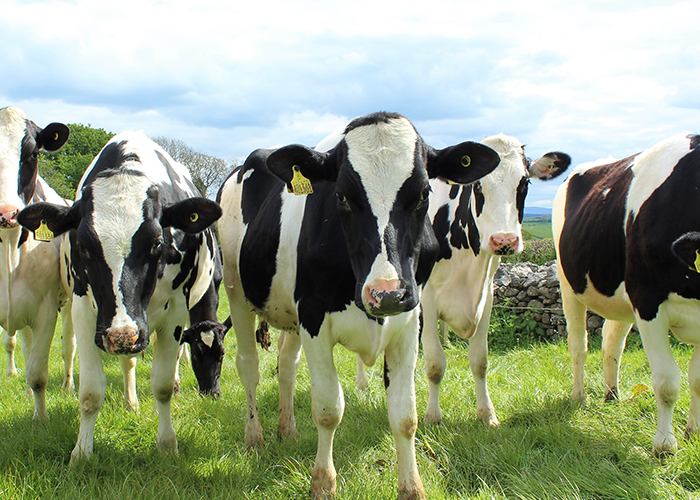Plant-based cheeses and spreads maker Upfield, which has its U.S. headquarters in Hackensack, released a report detailing the greenhouse gas footprint of its supply chain, urging other major food companies to be transparent, too.
The March 29 report released with sustainability groups Anthesis and Quantis said that 7.5% of Upfield’s total greenhouse gas footprint stems from methane. The company said it’s the first major food company to publicly disclose its corporate methane emissions figures.
“Important discussions started on the urgency with which we need to address methane as a contributor to the climate crisis at COP26 around fossil fuels, while methane in the food and agriculture sector was hardly mentioned. We are disclosing our methane footprint to set a precedent for methane transparency in the food sector,” said Sally Smith, Upfield’s global director of sustainability and ESG. “We want to help establish a methodology for measuring and disclosing methane, and to encourage action to rapidly reduce this harmful greenhouse gas. If you think there is a better way to disclose methane, we would like to hear it.”

A March 29 report released with sustainability groups Anthesis and Quantis said that 7.5% of Upfield’s total greenhouse gas footprint stems from methane. – PIXABAY
COP26, formally known as the 2021 United Nations Climate Change Conference, was the 26th United Nations Climate Change conference held at the SEC Centre in Glasgow, Scotland, last fall.
According to the Climate & Clean Air Coalition and UN Environment Programme’s 2021 Global Methane Assessment, the agriculture sector is the largest emitter of anthropogenic methane emissions, accounting for 40% of emissions, with livestock emissions representing roughly 32%. For this reason, Upfield wants to move to eliminate dairy from its global supply chains in the coming years.
Dairy makes up around 1% of Upfield’s ingredients by weight but is responsible for a disproportionate 8% of greenhouse gas emissions, a large proportion of which are methane emissions, the company said.
In a release, Upfield said the company “urges other food and beverage companies to measure and reduce their methane emissions too. While acknowledging its smaller footprint by way of producing plant-based products, Upfield calls for food and beverage companies to make a concerted and public effort to reduce their methane emissions through methods including diversifying product offerings away from meat and dairy, innovation in production methods and a shift from fossil fuels to renewable energy.”
“Cutting the methane impact of our diet is one of the easiest things we can do to tackle climate change in the short-term. Study after study has shown that eating a mostly plant-based diet is better for our health and better for the planet,” said Tim Croker, principal consultant at Anthesis, which is based in London. “Our agricultural and supply-chain specialists, supported by our Net Zero teams, welcome the challenge of working with companies like Upfield that want to lead the way.”
The entire report is available online.

